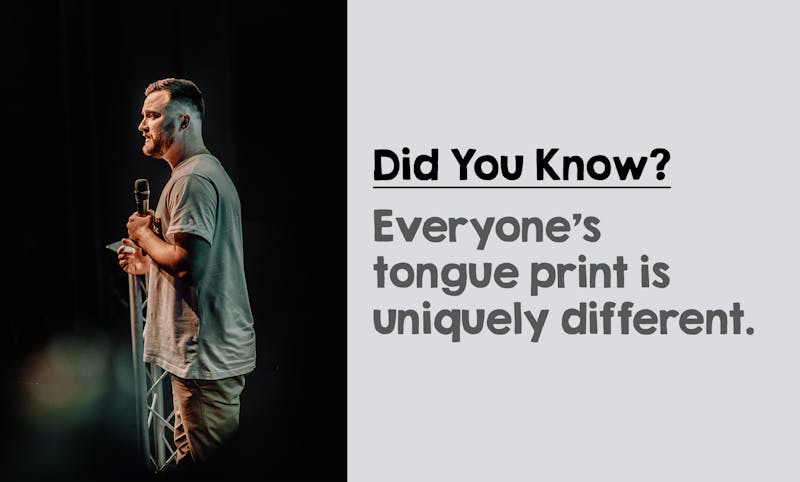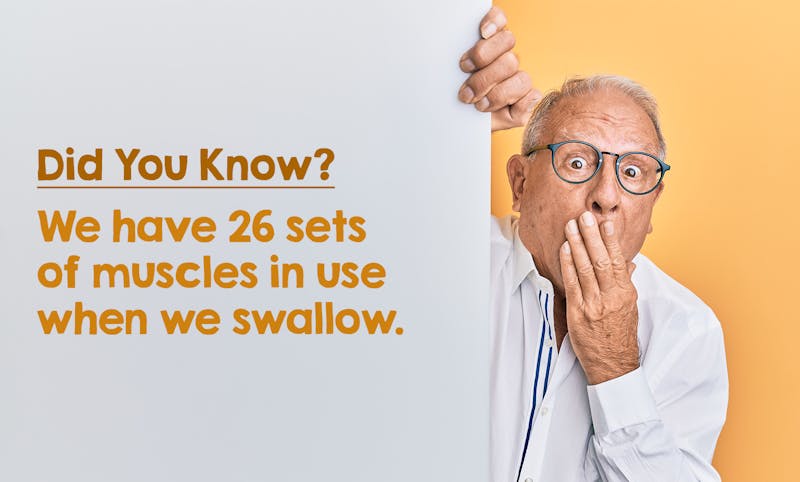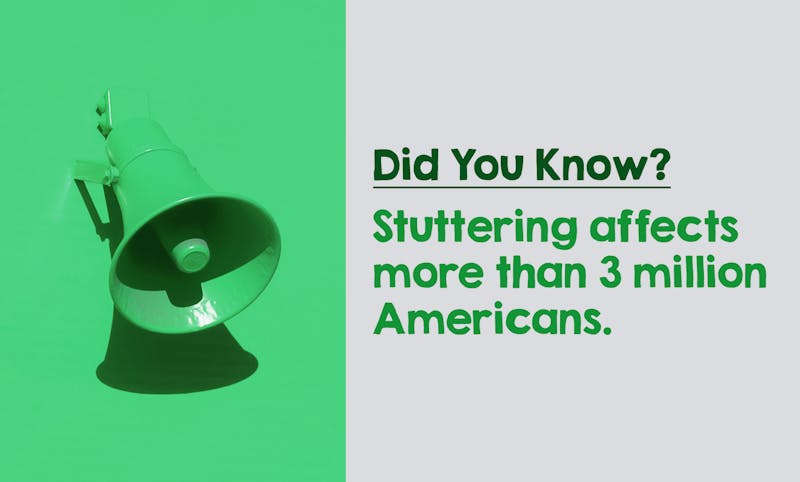Speech & Language Therapy The Complete Resource Guide

What Is Speech & Language Therapy?
At its simplest, therapy is defined as treatment designed to relieve or heal a disorder. There are many types of therapy out there, but none deal with a more human issue than speech and language therapy. After all, there aren't many creatures that can speak, and none as good as we do. The core focus of speech and language therapy is to provide treatment, care, and support for children and adults who struggle with communication, eating, drinking, or swallowing. Chances are we've all known or met someone who's required some form of speech therapy over the years. There are a few conditions we often encounter, especially as children. In this article, we hope to explain the common differences between child and senior speech and language therapy as well as provide a resource list that people may find helpful.
What Does Speech & Language Treat?
Speech therapy can benefit many different types of people with all kinds of disorders and issues. However, it's common to break types of disorders that speech and language therapy can treat into three sub-categories; speech, language, and eating.
Speech Disorders
Speech disorders are separated from language disorders as they relate to how sound is made. Common issues for people with speech disorders are articulation, fluency, and sound production. These issues affect a person's pitch, quality, or volume and can often lead to pain or distress while talking.
Language Disorders
Language disorders focus on the cognitive and receptive side of speech. Those with a language disorder may have problems understanding or processing information and will usually have a restricted vocabulary for which to express themselves. Other traits of a language disorder include distorted perception, memory problems, or lack of attention.
Eating Disorders
Eating disorders, or specifically Dysphagia, relate to oral eating disturbances in how someone eats or drinks. Usually, these disorders make it extremely difficult for someone to chew, cough, or swallow. Speech and language therapy has been proven to aid those with Dysphagia, allowing them to enjoy food and eliminate the pain of eating.
Speech Therapy For Kids
Speech and language disorders affect people all over the world, no matter their age or place of birth. In the USA, statistics show that over 18 million individuals have a speech or language disorder. Still, it's also estimated that 1 in 12 children between the ages of 3 and 17 has had a disorder related to voice, speech, language, or particularly swallowing. Children are much more likely to suffer from Dysphagia, with 25% to 45% of typically developing children demonstrating feeding and swallowing problems. Understanding the symptoms of some of these disorders can be crucial when raising a child, and reacting to them in a compassionate but effective way makes all the difference. However, as much as we should watch for signs at a younger age, speech and language therapy can be extremely useful for adults and seniors.
Speech Therapy For Adults & Seniors
We mentioned before that 1 in 12 children develop a speech, language, or eating disorder when they're young, but did you know that 1 in 17 people will develop swallowing problems in their lifetime? These disorders we are discussing do not just affect children, and for those who are older, seniors specifically, it's essential to take care and keep an eye out for any issues. After all, allergies, smoking, tense muscles, singing, talking, cheering, and drinking caffeine or alcohol are all examples of vocal abuse, potentially leading to speech and language disorders. So, let's talk about some resources that you might be interested in!
The 15 Best Speech & Language Resources
1. Articulation Station
Articulation Station is a free-to-download app for iOS devices that helps promote cognitive development and communication skills and was made to be an engagement aid in the classroom. Suitable for ages 5+, this app is hugely popular with Speech and Language therapists and SEN teachers alike.
2. Khan Academy Kids
Khan Academy is a fantastic no profit that provides free education to all. Khan Academy Kids is a colorful app they've created aimed at helping toddlers learn about language, phonics, and writing skills. This app can be used from preschool until second grade, has been downloaded over a million times, and is teacher approved.
3. Articulation Cards
These simple tools still rank amongst the best when approaching speech therapy. Many websites offer free downloads and worksheets, while professionally printed cards might be the right choice for teachers or visiting therapists. Adding a seasonal theme to these exercises is also a great way to keep kids interested.
4. Singing
Music truly is a great healer. Recent studies now show that singing can be beneficial for speech disorders. The way our brain computes words when spoken versus how we sing differs, allowing us to train our mouths and participate in melodic intonation therapy (MIT). It's been found to be useful for children and those who have suffered strokes and other neurological disorders.
5. Tongue Twisters
Remember doing tongue twisters as a child? There's nothing quite like a tongue twister to make your brain really focus on your pronunciation. Aimed more at children - though still a challenge for adults - this LearnEnglish Kids resource hosts an extensive collection of colorful twisters to try.
6. Tongue Exercises
Like any set of muscles, giving your tongue some exercise is always good. Nowadays, the internet is full of informative videos and unscrambler tools on how to better train and strengthen your speech patterns to aid with therapy or even to help articulation and boost social confidence.
7. Get Kissing!
Pulling a puckering kissy face takes much more effort and control than we realize. It uses a lot of muscles. Because of this, pulling a kissy face is a great exercise for those who've experienced a neurological injury like a stroke. It's a lot of fun for any age too!
8. Speech Tutor Pro
With over 10 years of work put into this articulation app, this resource is an excellent way to help users visualize mouth movements. It features more than 50 videos and 33 phoneme decks to aid mouth movement identification and exercise. A ton of great features in an impressive, simple app.
9. Speech & Language: Kids
We've spoken about how much children can be affected by speech and language disorders, and luckily the folks over at SLP solutions have compiled a bunch of incredible resources for kids on their site, Speech & Language for Kids. It's all free, so explore it if you're interested!
10. Seeing AI
Seeing AI is a free app that describes the world around you. By connecting to VoiceOver, the app can say what you see in front of you, simply scan your phone across any text, barcode, or image, and it will read it aloud to you. Health professionals have expressed their fondness for the app, and it's clear to see why.
11. Tactus Therapy
Tactus Therapy is a very different kind of site to the rest on this list, but we think it's an invaluable tool for helping you find the speech and language resources you need. Tactus Therapy helps people find and download the specific apps they need to aid their particular issues.
12. Z Vibe Kits
Ark's Z-Vibe range offers numerous oral treatment tools for developing oral motor skills, decreasing oral sensitivities, and much more. Ark's Z-Vibe tools are specifically made to support feeding therapies, oral motor exercises, or speech and language therapy, as therapists recommend.
13. Stamma
Stamma is a site that aims to help people with a stammer, one of the most common manifestations of speech disorders. Their useful site provides support leaflets, videos, audio resources, and more.
14. Teen Talk
As much support as there is for children, adults, and seniors, young adults and teenagers are often overlooked in the world of online resources. Teen Talk, a site developed by the University of Sheffield, specializes in aiding young people who have speech and language disorders. We recommend checking them out!
15. iCommunicate
Finally, we have iCommunicate, a great, well-updated site that focuses on a bunch of speech and language resources. iCommunicate has specific sections for teachers, and therapists and provides all the resources you could ever want for!
About the Author

Sam Walker-Smart
Sam Walker-Smart is a British culture journalist currently based in Bristol. His work has appeared in CLASH, The Huffington Post, Vinyl Me Please, Barcelona Metropolitan, Little White Lies, and other outlets. He enjoys writing about inclusivity in gaming, fun for seniors, educational apps, and entertainment for all. In his spare time, he enjoys weird folklore, sad songs, and good beer.
Recent Clues
- Rescue student stuck in wild Crossword Clue
- Call for Crossword Clue
- Mothers Crossword Clue
- Like some coffees and mob targets Crossword Clue
- Goods vehicle Crossword Clue
- "___, I forgot to mention ..." ("Oh, and another thing") Crossword Clue
- Notion Crossword Clue
- Very silly Crossword Clue
- George -, British admiral; victor over the French in the Battle of the Saintes of 1782 (6) Crossword Clue
- Sewing case Crossword Clue
- Check condition and put back to work (9) Crossword Clue
- The "A" of UAE Crossword Clue
- Trial gets rescheduled originally for American swimmer Crossword Clue
- Passenger-screening org. Crossword Clue
- Reverential wonder Crossword Clue
- Member on foot in ghetto escapes Crossword Clue
- Lima's land Crossword Clue
- Inclined Crossword Clue
- Applaud end of cholesterol in fried food (6) Crossword Clue
- Melody Crossword Clue
- Furniture wood (4) Crossword Clue
- International player embracing current energy-storage device Crossword Clue
- Own Crossword Clue
- Metallic element of the rare earth group; symbol Dy (10) Crossword Clue
- Field yield Crossword Clue
- Like unbuttered toast Crossword Clue
- Nauseate Crossword Clue
- Manipulate women's point of view Crossword Clue
- Heading west, number about to meet British artist Crossword Clue
- Loss (of fluid) (4) Crossword Clue
- Corn bread Crossword Clue
- Extraterrestrial robot explorer (5) Crossword Clue
- Tree ooze Crossword Clue
- "Friends" actress Aniston, to her fans Crossword Clue
- Morays Crossword Clue
- Throb Crossword Clue
- In one's ____, in one's place Crossword Clue
- Knight's title Crossword Clue
- Drollery, repartee (3) Crossword Clue
- Nasal partitions Crossword Clue
- Fish smell with head cut off Crossword Clue
- Not approximate, say Crossword Clue
- SoCal school: Abbr. Crossword Clue
- Eternal Crossword Clue
- Regain consciousness Crossword Clue
- Left, on a liner Crossword Clue
- "Neato!" Crossword Clue
- Walking stick Crossword Clue
- "___, Pray, Love," Julia Roberts starrer Crossword Clue
- Love to bother engineers (5) Crossword Clue
Trending Clues
- Sitar tunes Crossword Clue
- Algiers section Crossword Clue
- Appliance parts Crossword Clue
- Kicks upstairs Crossword Clue
- Black Crossword Clue
- 1998 De Niro movie Crossword Clue
- Type Crossword Clue
- Bound by obligation (2 wds.) Crossword Clue
- Brown hue Crossword Clue
- Heath Crossword Clue
- Binding obligation Crossword Clue
- Extra action Crossword Clue
- Bearings Crossword Clue
- Flared dress Crossword Clue
- West African capital Crossword Clue
- Approximation Crossword Clue
- Helpful things Crossword Clue
- Spiritual leader whose name translates to "my teacher" Crossword Clue
- Without a contract Crossword Clue
- Board game with horses Crossword Clue
- Celebrity chef Matsuhisa Crossword Clue
- Longtime Alabama football coach Nick Crossword Clue
- Antler points Crossword Clue
- Moneymakers Crossword Clue
- Startle Crossword Clue
- White (4) Crossword Clue
- Name on a champagne label Crossword Clue
- Vassalage Crossword Clue
- First Belmont Stakes winner Ruthless, e.g. Crossword Clue
- Ladle water (4) Crossword Clue
- Antelope who really loves bubble gum? Crossword Clue
- Peregrinate Crossword Clue
- Instructed in moral knowledge Crossword Clue
- Tapestry Crossword Clue
- "East of Eden" girl Crossword Clue
- Dweller in the country where the Tigris and Euphrates meet Crossword Clue
- Sea serpent of myth Crossword Clue
- Tanning and dyeing substance Crossword Clue
- Plant found in wet areas Crossword Clue
- Fix, as glitchy software Crossword Clue
- Made a blueprint for Crossword Clue
- Clue room Crossword Clue
- Slow-witted Crossword Clue
- Charmingly persuasive Crossword Clue
- Negative (criticism) Crossword Clue
- Cosmo VIPs Crossword Clue
- Clarke of "Game of Thrones" Crossword Clue
- Epps of "This Is Us" Crossword Clue
- Soccer event Crossword Clue
- Port of Nigeria Crossword Clue


